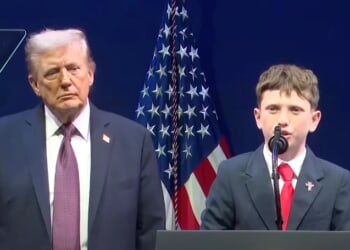Back in May, I wrote that: “Sir Keir Starmer looks to be once again teeing himself up for a command performance in the traditional ritual suicide of a British political consensus: opening the Overton Window real wide and then hurling oneself out of it.”
The occasion was the Prime Minister’s ‘Island of Strangers’ speech; the subject was my supposition that he would make sufficient concessions to the sea-change on the politics of immigration to accelerate it, but not enough to keep his head above the water.
His subsequent decision to tell journalists he regretting saying the famous phrase, and hadn’t authored it, was an excellent illustration of the point. So too, in a slightly different way, are the latest announcements from Yvette Cooper. The new policies – especially new penalties for universities which are too lax about admitting international students – are good, in and of themselves. But as I set out in this morning’s Sun, they’re unlikely to be enough.
At root, Starmer is tying himself in the same knot as did Rishi Sunak: attempting to satisfy the public on illegal immigration and abuse of the asylum system, but without making any changes to the underlying architecture of legal and treaty obligations which have produced the status quo.
The result is, as it usually is, an attempt to engineer preferred outcomes indirectly – and usually ineffectually. Consider that new university policy, described thus in today’s Times:
“As part of a fresh government crackdown, universities will be penalised if fewer than 95 per cent of international students accepted on to a course start their studies, or fewer than 90 per cent continue to the end. Institutions that accept foreign students will face sanctions if more than 5 per cent of their visas are rejected.”
It goes on:
“The Home Office has said that the majority of students claiming asylum do so as they approach their visa expiry date, indicating they are using the student route to make claims for humanitarian protection when circumstances in their country have not changed.
“The worst-performing universities will be named and shamed. Limits will be imposed on the number of new international students they can recruit until they have improved and those who fail to do so will be stripped of their ability to sponsor study visas altogether.”
Cooper is quite right to try and make universities internalise some of the costs of reckless offers, although it would be interesting to know if the scale of the sanctions will meet the costs to the British state arising from students deemed to have come here under false pretenses. But if the Home Office is convinced that many students are abusing the system in the manner described, a much surer safeguard would be for the Government to close that route to asylum – for people from countries where there has been no significant change in circumstances – altogether.
Yet that would be near-impossible under current arrangements because of the number of ways a determined claimant can play the system, most obviously by actively conducting themselves in such a way as to make their claim more credible.
A few years ago one asylum seeker secured the right to stay here because he during his appeal set up a blog attacking his home government; online videos apparently advise that converting from Islam (or appearing to) is likely to bolster one’s chances, and how charity visas can be used to bring over dependents with the right to work.
The most obvious manifestion of this indirect policy approach, of course, is the phenomenon of Channel crossings. Because existing asylum law provides no way to reject legitimate claims – for example, in order to impose an annual cap on the number of people we take – successive governments have instead tried to rely on the friction created by our geography, imposing a cross-continental hike and Channel dash as a rather Spartan de facto admission test.
Labour could and should go further than this latest round of interventions, and as the pressure mounts it almost certainly will. Cooper herself is of New Labour pedigree, and it could be remarkably effective on asylum. It was the Blair Government which set up an asylum appeals procedure eventually struck down by the courts for rejecting too many claims, and Tony Blair himself – the very prime minister who passed the Human Rights Act – who defied Strasbourg to refuse votes to prisoners.
There were giants in the land, once. But today’s ministers have to contend with Lord Hermer, the Attorney General, and his frankly unconstitutional position that the United Kingdom should not break international law in any circumstances. Such an attitude precludes completely any lasting solution to the immigration crisis. Hence my question in the Sun today: “So which is more important to Sir Keir: the future of his government or the good opinion of the Attorney General?”
Even were Starmer completely reconciled to the need for fundamental reform, however, he would face a very difficult task in keeping pace with public opinion whilst keeping his increasingly fractious MPs on side. Such a task might even test the skills of a modern Blair, which he is not. But the unhappy fate of the Sunak Government is a warning of what certainly awaits his own if he doesn’t try.





![ICE Arrests Illegal Alien Influencer During Her Livestream in Los Angeles: ‘You Bet We Did’ [WATCH]](https://www.right2024.com/wp-content/uploads/2025/08/ICE-Arrests-Illegal-Alien-Influencer-During-Her-Livestream-in-Los-350x250.jpg)
![Gavin Newsom Threatens to 'Punch These Sons of B*thces in the Mouth' [WATCH]](https://www.right2024.com/wp-content/uploads/2025/08/Gavin-Newsom-Threatens-to-Punch-These-Sons-of-Bthces-in-350x250.jpg)







